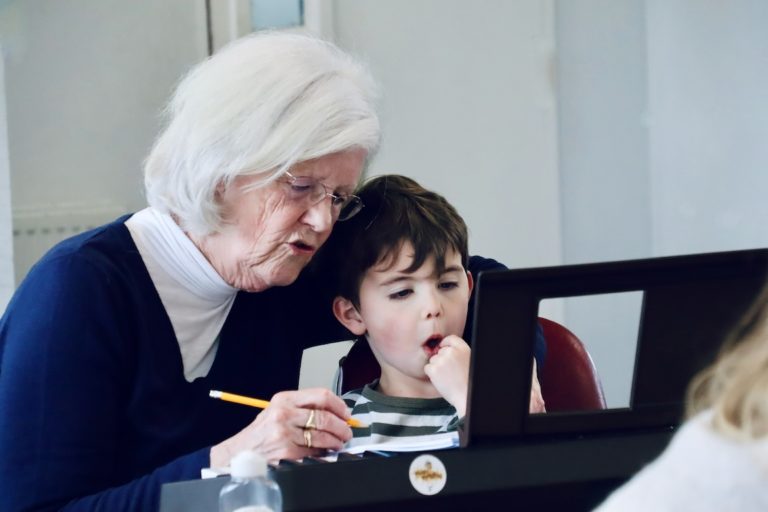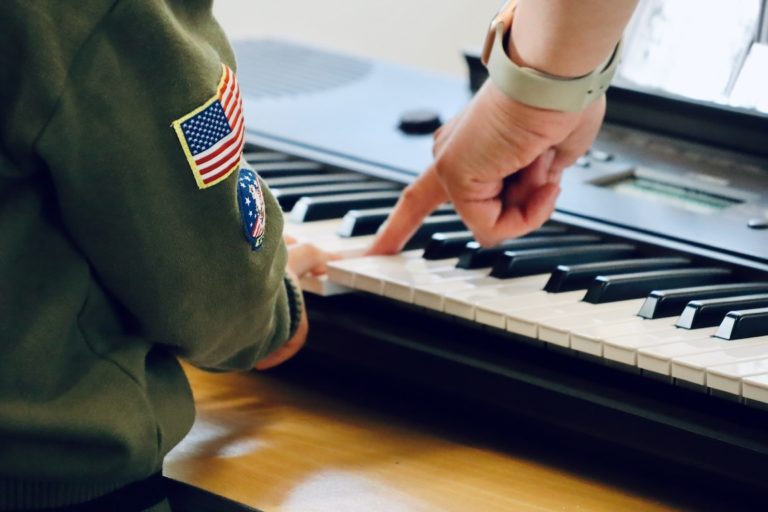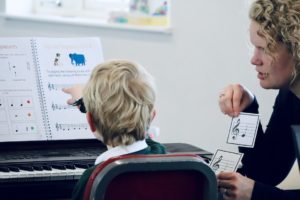First of all...
Please don’t feel tonnes of pressure to establish the perfect piano practice routine. There is already too much to do, we know – we empathise with the ever-increasing busy-ness of our children’s lives. This isn’t intended to add to that pressure – but instead to be a source of information to help you to be really intentional about how to get kids to practise in a way that is fun, comfortable, and stress free!
At Music Monsters, we set weekly challenges and practice for our students to do, encouraging them to engage with their instrument in between lessons. But how? How do we actually get kids to practise, and what should it even look like? How do we create these habits, and how do we ensure that they are progressing? How do we know if they are getting it right, and how can we support them?
Do Kids Have to Do Piano Practice?
For us, at Music Monsters, we largely work with young children at the very beginning of their journey. So, for us, when kids are just starting, practice is not compulsory. This is for several reasons:
1. We don’t insist that parents buy an instrument when they first begin, as we find it places unnecessary pressure on the child to stick with a hobby that they may not actually be that interested in. We’d rather you come along for a few lessons before deciding whether or not to make that investment
2. With very young children, the more pressure you put on them to do something, the more stressful it can become. We want learning the piano to be fun – not a source of anxiety.
3. It is more important to us to create a culture where kids WANT to practise – not because they have been forced to, but because they find it fun, relaxing, and intrinsically satisfying.

Building Blocks to Piano Practice
Before you have an instrument, there are still things you can do to encourage musical engagement at home. Listen to music together, clap rhythms, talk about instruments, recap things learnt in class, recreate some of the games that they played, watch some of the BBC children’s proms, sing, play homemade percussion instruments, download the My Piano app, and locate notes that they know on the keyboard.
Once you are confident that your child is happy and enjoying their learning experience, you can find our recommended instruments just here. Contact us through the form at the bottom of this page if you have any questions about these!
Creating A Happy Environment For Practice
Practice Sessions For Older Kids
- Play any scales or exercises
- Play through each piece, observing teacher’s notes
- Zoom in on tricky bits, or passages that need extra attention
- Sight-read a piece never seen before
- Complete any theory exercises set/compose a new piece/improvise on a piece already learnt

Starting Points For Everyone
You will find tonnes more games and ideas in our Ebook: 50 Inspiring Practice Games for Kids.
You may also find our Inspiring Practice Journals helpful, for motivating kids and keeping a record of the things you are working on! Use the code ‘practicemakesperfect’ to get £3 off, using this link.
I hope this has been a helpful guide! Drop us a message with any questions at all, and visit our class information pages to learn more about how Music Monsters can support your child’s learning!
Lauren x



